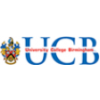Snabbfakta
-
- London
Ansök senast: 2025-03-10
Senior Bioinformatician (Imaging)
Senior Bioinformatician (Imaging)
Senior Bioinformatician (Imaging)
Salary for this Role:
From £51,345 per annum with benefits, subject to skills and experience
Job Title: Senior Bioinformatician (Imaging)
Reports to: Samra Turajlic
Closing Date: 08/Jan/2025 23.59 GMT
Job Description:
Senior Bioinformatician (Imaging) – MANIFEST Research Platform / Cancer Dynamics Laboratory
Reports to: Prof. Samra Turajlic, Cancer Dynamic Laboratory Group Leader and MANIFEST Consortium Lead.
Contract term: This is a full-time, fixed term (4 years) position on Crick terms and conditions of employment.
The role will be placed in Cancer Dynamics Laboratory (Turajlic Lab) and will support the MANIFEST research platform led by Prof. Samra Turajlic.
The Research Group & Project
The MANIFEST RESEARCH PLATFORM
Harnessing the immune system to treat cancer has revolutionised survival outcomes for many patients. Immune checkpoint inhibitor therapies which unleash the brakes from immune cells to kill cancer cells, have become standard of care for many cancer subtypes. The success of existing, emerging and future immunotherapies and their routine use in the NHS is dependent on the appropriate tools, data and technology to rationalise their use and manage their side effects. Nevertheless, almost no biomarkers today can effectively distinguish responders from non-responders, predict toxicity, or guide treatment choices.
An exciting Senior Bioinformatician post is available for MANIFEST (“MultiomicANalysis ofImmunotherapyFeaturesEvidencingSuccess andToxicity”), a newly formed ambitious multi-stakeholder consortium involving academic, industry and NHS partners to deliver deep multiomic profiling for patients with cancer undergoing immunotherapy. The MANIFEST consortium represents a diverse group of UK-wide experts in cancer research and clinical care comprising major NHS trusts, academic institutes and universities, and industry partners. This grant is funded by the UK Office of Life Sciences (OLS) and the Medical Research Council (MRC).
MANIFEST addresses the critical challenge in cancer treatment: predicting how patients will respond to immunotherapy. By integrating multiomic data and innovative methodologies, this platform aims to enhance treatment precision and effectiveness.
More information can be found here: MANIFEST.
Summary of the role
The post-holder will work under the supervision of Prof. Samra Turajlic (Francis Crick Institute) to quantify dynamic changes in cellular populations as tumours evolve over space and time from primary through to metastatic disease. The primary duty of the post-holder will be to optimise existing algorithms for the analysis and interpretation of multiplex immunofluorescence imaging data, including cell segmentation and quantification and identification of individual cell types within the tumour microenvironment as well as their spatial and social organisation.
Key Responsibilities
- Work within the bioinformatics team of the Turajlic lab, and collaborating groups at Francis Crick Institute and beyond, including academic and industry partners.
- Optimise image analysis platforms capable of answering research questions associated with the response to cancer immunotherapy.
- Provide expert analysis of high-throughput spatial imaging and spatial omics data, using a wide range of biological resources and bioinformatic methods.
- Develop and/or optimise methodologies and techniques to address analysis challenges and implement tools, pipelines and data resources in relation to these technologies.
- Provide consultation and communication in data analysis, data mining, and statistics for analysis of biological data.
- Analyse large-scale multi-region imaging data.
- Provide statistical support to other team members.
- Liaise and coordinate between project collaborators which include clinicians, cancer biologists, machine learning experts and mathematical modellers.
- Document all analyses in an accurate, timely and clearly presented manner, and use this to prepare data summaries and reports as and when required.
- Understand the relevant literature (cancer biology, spatial biology and cancer immunology) sufficiently to perform analyses and propose novel ideas.
- Attend and report research results at regular group meetings.
- Contribute to the broader research programme of Turajlic lab intellectually and practically.
- Write and present work to MANIFEST stakeholders as required.
- Engage in relevant MANIFEST programme workflows with academic, NHS and industry partners.
- Support junior colleagues as necessary.
- Any other duties appropriate to the scope and grade of the post. The job description may be subject to review and amendment in consultation with the post holder as job duties change/develop.
Person Specification
The post holder should embody and demonstrate our core Crick values: bold, open, collegial, in addition to the following:
Essential skills/experience
- Masters or higher degree in bioinformatics or a relevant discipline with extensive analytical component (or equivalent experience).
- Demonstrable experience and skills in imaging data analysis particularly from either transcriptomics-based imaging (e.g., spatial transcriptomics, single-cell RNA imaging, in situ RNA FISH), multiplex imaging data (e.g., mass cytometry, multiplex immunofluorescence or high-plex immunofluorescence), or both.
- Considerable experience of using bioinformatics in a biological field, ideally within translational research projects.
- Fluent in shell scripting and at least one of the following programming languages: R or Python, for bioinformatics and image analysis tasks.
- A strong foundation in bioinformatics with good computational skills, especially in handling large datasets and automating workflows.
- Good understanding of statistical approaches for omics and imaging data analysis, particularly for high throughput and complex datasets.
- Experience in analysing complex biological data such as spatial omics and integrating these datasets with other omics (e.g., genomics, transcriptomics, proteomics) for comprehensive multi-omics studies.
- Knowledge of cutting-edge analytical techniques for spatial imaging and spatial omics technologies, ensuring familiarity with the latest tools and pipelines in the field.
- Ability to manage projects, including setting timelines, analysing data, presenting findings, and writing up conclusions in a structured manner.
- Experience of managing a large analysis project over a number of years.
- Work with minimal supervision, organising and prioritising own workload.
- Evidence of independent and original contribution to research.
- Ability to define and solve research questions.
- Excellent presentation skills.
- Excellent inter-personal skills and commitment to teamwork.
- Pro-active in innovation, problem solving and critical thinking.
Desirable skills/experience
- Prior experience of single cell and/or spatial transcriptomics data.
- Knowledge of cancer immunology.
- Previous experience of multidisciplinary working.
- Experience with any workflow management framework like Nextflow or snakemake.
- Good understanding of deep learning frameworks for image analysis (CNNs, transfer learning).
- Experience of supervising or mentoring other members of the team.
About Us
At the Crick, we conduct research at the forefront of biomedical research. We combine rigour with an open and collaborative culture, and are outward-looking, reflecting our status as a partnership of six organisations aiming to pool knowledge, ideas and resources.
We have a wide research portfolio with no divisions or departments, bringing biomedical researchers together with clinicians, physical scientists and applied scientists from our pharmaceutical partners.
We aim to attract the most talented researchers and support them to tackle innovative research questions. Our science technology platforms provide our researchers with access to state-of-the-art technology and expertise.
We provide an excellent learning environment with dedicated education programmes in public engagement with science, education and personal development, and a postdoc training programme that prepares scientists for leadership roles in science.
If you are interested in applying for this role, please apply via our website.
All offers of employment are subject to successful security screening and continuous eligibility to work in the United Kingdom.
If you require a visa to work in the UK we will help support your application should you be successful.
Find out what benefits the Crick has to offer:
For more information on our great pay and benefits package please click here: Pay and Benefits.
Equality, Diversity & Inclusion:
We welcome applications from all backgrounds. We are committed to providing equal employment opportunities, regardless of ethnicity, nationality, gender, sexual orientation, gender identity, religion, pregnancy, age, disability, or civil partnership, marital or family status. We particularly welcome applications from people who are Minority Ethnic as they are currently underrepresented in the Crick at this level.
Diversity is essential to excellence in scientific endeavour. It increases breadth and perspective, leading to more innovation and creativity. We want the Crick to be a place where everyone feels valued and where diversity is celebrated and seen as part of the foundation for our Institute’s success.
The Crick is committed to creating equality of opportunity and promoting diversity and inclusivity. We all share in the responsibility to actively promote dignity, respect, inclusivity and equal treatment and it is our aim to ensure that these principles are reflected and implemented in all strategies, policies and practices.
Read more on our website: Equality, Diversity & Inclusion.
#J-18808-Ljbffr












